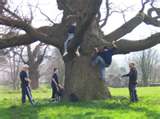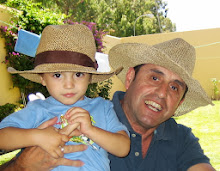The school year is now over. Lots of work lies behind and now the time has come to enjoy a well-deserved rest. It has been a great pleasure to work with you this year. We have all learnt so many things that will be of great use in our lives. Thanks for your contribution and enthusiasm. I'll be looking forward to seeing you back again in September. Till then, all the best.
I will not update this blog during the summer as often as I have done during the school year. However don't forget to pay us a visit once in a while.







































